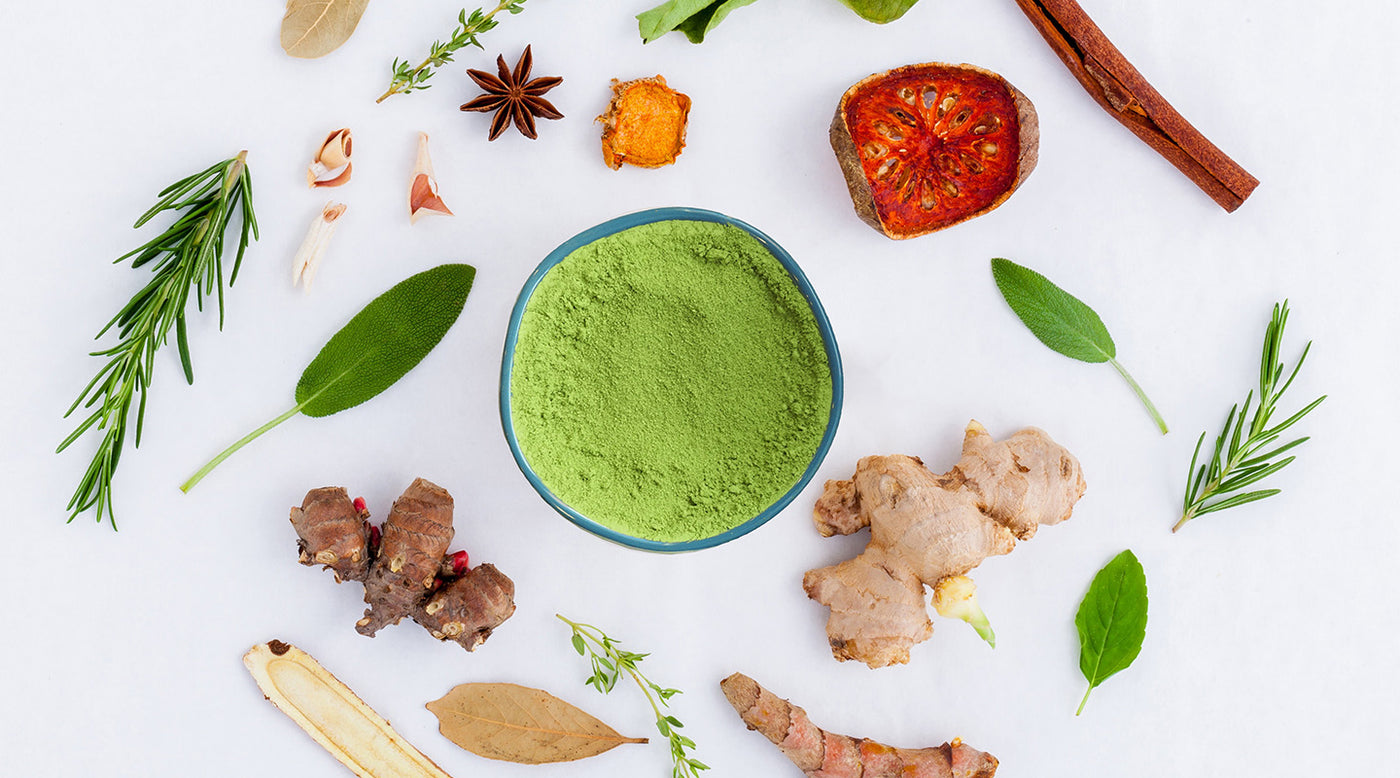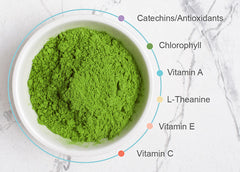
You may have heard this phrase from articles, social media, or even while browsing through healthy options at the grocery store. The FDA doesn’t define this term, but functional foods are basically foods and beverages that may have a positive impact on health beyond the immediate calories and nutrition they provide.
Examples include leafy greens that provide folate which is known for reducing birth defects, or whole grains which reduce cholesterol and improve heart health.
Matcha green tea is perceived as a nutrition powerhouse. For many people outside of Japan, their introduction to matcha green tea probably included info about its powerful antioxidant compounds, properties of relaxation, or countless other potential health benefits. Standard green tea steeped in hot water is known for its many health benefits, but with matcha you are consuming the entire tea leaf, getting up to 10x the nutritional value. Nutraceutical matcha is sought after in foods, beverages and supplements for its unique nutrition and pleasant taste. So yes, matcha is a functional food that may provide consumers additional health benefits.
 According to New Hope, the size of the functional food and beverage market grew about 2% to $5.8 billion in 2019. Coffee and tea are some of the driving products behind the functional ingredients trend, with RTD drinks leading the charge as “pioneering drivers of innovation.” Current top health concerns for consumers include sleep, stress, and inflammation, with L-theanine, an amino acid found in tea, rising to the top of ingredients in terms of growth. With tea and L-Theanine at the head of the trend, let’s explore how matcha’s unique nutrients meet this growing demand for functional food options:
According to New Hope, the size of the functional food and beverage market grew about 2% to $5.8 billion in 2019. Coffee and tea are some of the driving products behind the functional ingredients trend, with RTD drinks leading the charge as “pioneering drivers of innovation.” Current top health concerns for consumers include sleep, stress, and inflammation, with L-theanine, an amino acid found in tea, rising to the top of ingredients in terms of growth. With tea and L-Theanine at the head of the trend, let’s explore how matcha’s unique nutrients meet this growing demand for functional food options:
L-THEANINE: The amino acid L-theanine often lessens the “jitters” associated with caffeine consumption, and is linked to improved cognition, relaxation and stress reduction. In matcha this presents as:
 CATECHINS: Each green tea leaf contains strong antioxidant compounds (catechins) that have been linked to cell damage prevention. Matcha is known for its high concentration of EGCG (epigallocatechin gallate), one of the most powerful catechins found in food. Catechins may:
CATECHINS: Each green tea leaf contains strong antioxidant compounds (catechins) that have been linked to cell damage prevention. Matcha is known for its high concentration of EGCG (epigallocatechin gallate), one of the most powerful catechins found in food. Catechins may:
CHLOROPHYLL: The shading process before the tea leaf harvest produces a highly concentrated amount of chlorophyll. Lauded as a natural detox, chlorophyll removes heavy metals and harmful toxins from the body which, in turn, promotes cleaner, healthier skin, and:
VITAMINS A, C, E: This special group of vitamins all have properties of antioxidants, meaning they combat free radicals that cause cell damage. Potential health benefits include:
Add potassium, magnesium, iron, calcium, and you’ve just scratched the surface of Matcha’s nutrients and potential health benefits.
If you’re developing a line of functional food products, get in touch with some details about your project. We’ll help you find the nutraceutical matcha that best meets your needs.